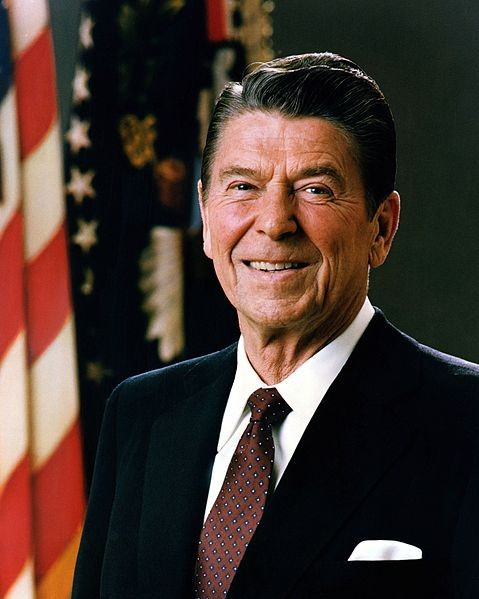Ronald Reagan would not approve of George Osborne's budgetary nitpicking to reduce deficit

The death of Nancy Reagan has inevitably revived memories of her belief in astrology. For us boring economic commentators, however, it also brings back happy memories of her husband's relaxed approach to monetary policy.
One such example of this laid-back approach was Reagan's putative belief in supply-side economics: this was a kind of branch of astrology, whose central tenet boiled down to the proposition that tax cuts for the rich would somehow pay for themselves.
There was a precious moment when one of the main champions of supply-side economics, Arthur Laffer, attempted to demonstrate the magical effects of his theory by drawing what became known as the 'Laffer Curve' on the back of a napkin in a Washington DC restaurant.
Well, tax cuts for the rich don't pay for themselves . What they do is pay for more yachts, country houses and items from the Financial Times weekly supplement entitled ' How to Spend It.'
What tax cuts for the nation's finances actually do is add to the budget deficit. In Reagan's case, however, they were not the only things that added to the budget deficit. There was a huge increase in defence spending, arguably Reagan's major contribution to history, because it was that gesture of military might that convinced the Soviets that the game was up, and the West had won the arms race.
Many things followed, including glasnost and perestroika under that great statesman Mikhail Gorbachev. Unfortunately, after a while, so did Vladimir Putin – but that is another story.
Back to Reagan. One of his many talents was the ability to deliver wisecracks, even if they had to be written on cue cards. And to my mind his greatest wisecrack on the economy was when he said: "I am not worried about the deficit. It is big enough to take care of itself."
Turning to the UK, I know that George Osborne is a historian, but I sometimes wonder whether he has ever heard of Reagan's relaxed approach to deficits and the plaudits it won for the American president.
I also wonder whether such influential policymakers in the eurozone as the German finance minister Wolfgang Schauble have studied the Reagan presidency.
Despite the fact that the International Monetary Fund and Organisation for Economic Development are bastions of economic orthodoxy, their advice for a Group Of 20 collective fiscal stimulus was turned down flat at the recent G20 meeting in Shanghai.
According to Schauble, although monetary easing has reached its limits, "we do not agree with a G20 fiscal package... There are no short cuts that aren't reforms."
George Osborne's response was even worse: for him the slowdown that so worries the IMF, the OECD and many others should not only be met by a refusal to relax fiscal policy . It is the pretext for further tightening in next week's Budget.
The irony is that by taking action ostensibly designed to cut the deficit Osborne may well be adding to the "cocktail of risks" he goes on about: that is to say, he may be aggravating an economic slowdown that will hit government revenues – thus further delaying his already slow progress with his self-imposed aim of achieving a budget surplus.
President Reagan would not have approved.
© Copyright IBTimes 2025. All rights reserved.






















